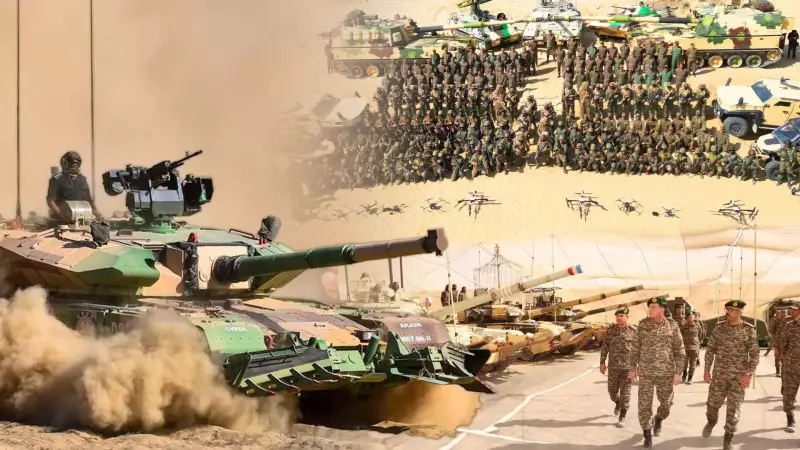
Former US President Donald Trump has declared economic war on India, imposing harsh new tariffs after Prime Minister Narendra Modi's government refused to comply with American demands to stop purchasing Russian oil. The dramatic escalation in trade tensions comes amid growing geopolitical realignments that saw India strengthening ties with both Russia and China.
The Tariff Ultimatum
In a stunning move that has shaken US-India relations, Trump slapped additional 25% tariffs on Indian goods after Delhi explicitly rejected Washington's 24-hour ultimatum to cease buying Russian petroleum products. The aggressive trade measures represent the most significant economic confrontation between the two nations in recent years.
Trump's trade adviser publicly expressed rage at India's defiance, calling the situation a "shame" while the former president himself declared that the US had "lost India to China" in a remarkable statement that highlighted Washington's growing concerns about Delhi's foreign policy orientation.
Diplomatic Maneuvers at SCO Summit
The trade confrontation unfolded against the backdrop of significant diplomatic activity at the Shanghai Cooperation Organisation (SCO) summit, where Prime Minister Modi engaged in what observers described as "bonhomie" with both Russian President Vladimir Putin and Chinese leader Xi Jinping. The tripartite meeting signaled India's continued commitment to maintaining strong relationships with both Eastern powers despite Western pressure.
During the summit, Modi delivered a sharp critique of what he termed "selfish economies" and their approach to international trade, a clear reference to the protectionist policies being advocated by the Trump administration. The Indian leader's comments came as he met with both Putin and Xi, demonstrating India's strategic balancing act between Eastern and Western powers.
Regional Developments and Kashmir Statement
Amid the international diplomatic storm, Prime Minister Modi made his first visit to Jammu and Kashmir following the devastating Pahalgam attack, where he delivered a significant declaration about Pakistan's actions in the region. Modi accused Pakistan of attacking "Kashmiriyat", the unique cultural identity of Kashmir, in a strongly worded statement that highlighted ongoing tensions between the nuclear-armed neighbors.
Meanwhile, in a tragic domestic development, a massive landslide hit an Indian Army camp in Sikkim after the River Teesta swelled dangerously, resulting in three personnel killed and six others missing. The incident underscored the multiple challenges facing the Indian government both domestically and internationally.
In international forums, Indian diplomat Shashi Tharoor mocked Pakistan's Kashmir ambitions during a speech in Guyana, stating that "they want something they don't have" in a dismissive assessment of Islamabad's territorial claims.
Broader Geopolitical Implications
The unfolding situation represents a critical test for India's multi-alignment foreign policy strategy. As Trump makes what observers have called a "stunning U-turn" after initially claiming the US had lost India to China, then asserting that "Modi and I will always be friends," the relationship between Washington and Delhi appears to be entering uncharted territory.
The developments also coincide with Russian Foreign Minister Lavrov declaring that Putin would not meet Ukrainian President Zelensky, a statement that further complicated the international diplomatic landscape and added another layer to the complex geopolitical chess game unfolding across multiple continents.
As trade tensions escalate and diplomatic relationships are tested, India finds itself at the center of a global power struggle that pits Western alliances against Eastern partnerships, with Prime Minister Modi navigating these treacherous waters while maintaining India's strategic autonomy and national interests.






